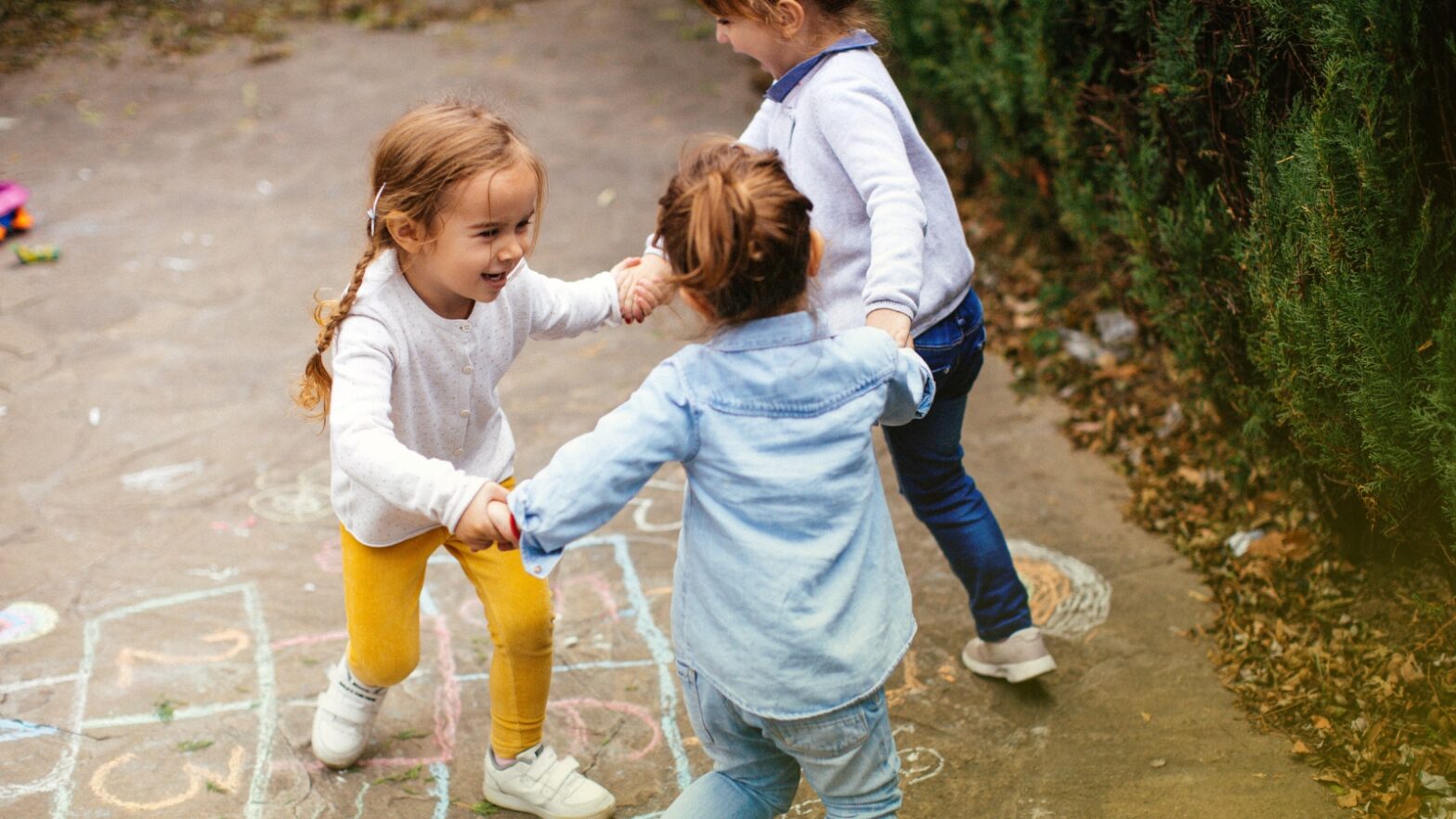It’s absolutely endearing to see your child make their first friend! This milestone shows emotional growth and gives your child an early chance to practice empathy and communication. They’ll learn how to tackle complex emotions, such as sharing their toys with other children.
Bluey says it best: “Friends improve everything, even bad days.”
Friendship skills grow gradually with each age. This blog will help parents understand how their children develop socially and how they can support them at every step.
Early Friendships: Ages 1–2
At this stage, children are curious about others, but they often play side by side rather than together. You may notice your children watching another and begin mimicking their actions. These are the earliest blocks of friendship, noticing how other children play and beginning to understand their own role.
How we support this stage:
Our teachers encourage parallel play by providing shared spaces with age-appropriate toys and materials. We model gentle interactions with other children and help your child practice sharing.
Read Our Blog: Building Emotional Intelligence in Children
Learning to Play Together: Ages 2–3
By the age of two or three, children begin to engage in simple cooperative play. They will build block towers together, chase each other in the yard, or participate in pretend scenarios. They may start calling classmates ‘my friend’ and look forward to seeing familiar faces.
How we support this stage:
Through guided group activities, story time, and songs, children learn to take turns and listen to others. Our bilingual environment (English/Spanish) helps them expand their vocabulary for expressing friendship — words like “amigo,” “share,” and “play.”
Building Bonds: Ages 3–4
Preschoolers begin to understand the give-and-take of relationships. They show preference for certain friends, demonstrate empathy when someone is sad, and start resolving minor conflicts with guidance.
How we support this stage:
Teachers introduce games and activities that require teamwork, like group art projects or building challenges. We also use emotional labeling like: “I see you’re sad your toy was taken.” This helps your child recognize their feelings and confront how to respond to a problem with kindness.
Read Our Blog: Big Leaps for Little Feet: What to Expect at Age 3
Friendship and Independence: Ages 4–5
By the time children are entering pre-K, they’re forming deeper friendships. Your child might have a best friend. They might navigate disagreements for the first time on their own. These experiences teach them trust, problem-solving, and independence.
How we support this stage:
Our curriculum includes role-play activities, group discussions, and cooperative games. We encourage children to solve conflicts with teacher guidance, teaching them to use words and empathy to solve problems together.
Monitoring Social Growth
Just like walking or talking, friendship skills develop at different speeds for each child. Some children jump right in, while others take time to feel comfortable.
At Angels Care, our teachers observe and gently guide social interactions while communicating with parents so that together, we can support each child’s unique journey.
Why Angels Care & Learning Center
At Angels Care & Learning Center, we create an environment where friendships bloom naturally:
- Safe spaces that encourage both group play and individual comfort.
- Guided social learning where teachers model kindness, empathy, and cooperation.
- Bilingual classrooms that expand communication and connection across languages.
- Strong support for parents who want their children to thrive socially, emotionally, and academically.
Every friendship starts with trust, and we’re here to nurture those first bonds that can last a lifetime. At Angels Care, we’re honored to walk alongside your child as they discover the magic of making friends.
👉 Take a virtual tour today and see how our classrooms help little ones grow together.

